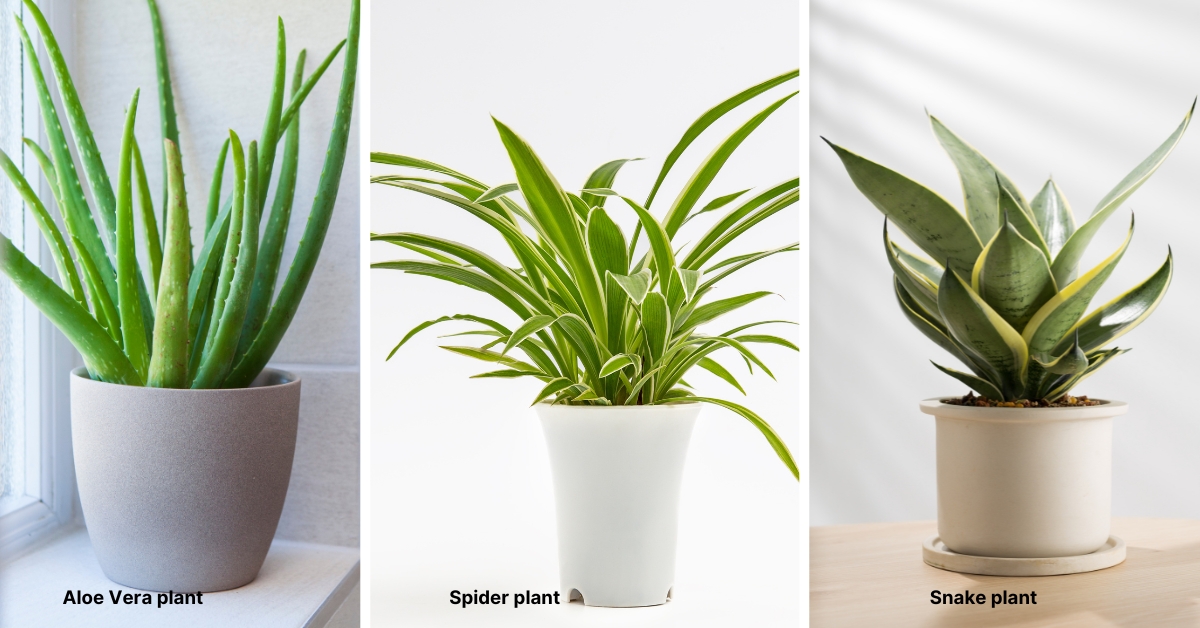Put these plants in your bedroom for a better night’s sleep
Sleep better with plants. If you’re seeking a better night’s sleep, you should consider adding some of these healthy greens to your bedroom decor. Heck, go ahead and add them all over your house! With great health benefits and a variety of options to fit every lifestyle, there’s no reason not to go green in every space!
Pick your plants
I’ve always been a fan of having plants around. They help with your home’s air quality, they look nice if you remember to water them, and, depending on the variety, they smell pretty good too! But it wasn’t until I started doing research for this article that I began to find that plants have the potential to do more than just liven up a boring corner or alcove; they can actually help you sleep.
But how do they do it? Turns out there’s a few different ways that plants can impact your sleep health. And before your mind begins to wander, let me just say that no plant out there is going to magically carry you to dreamland. They aren’t a miracle cure. Their abilities lie in air purification and providing soothing scents. Not too shabby, if you ask me.
Because taking care of plants doesn’t come naturally for all of us, and because some of our family members have four paws, I chose to divide these sleep-benefiting plants into three categories: Easy to Care For, Yummy-Smelling, and Okay for Pets! So read on and find your new sleep companion, and get ready for some more restful snoozing courtesy of mother nature.
Easy to care for plants

Aloe Vera – Possibly the best choice for people who have never been successful keeping indoor plants alive! Aloe vera perseveres through your weeks of neglect and STILL provides you with cleaner air and better sleep quality. Can we hear it for this little guy? Just make sure you put your aloe plant where it can get access to a lot of direct sunlight during the day.
Spider Plant – This plant is not made of actual spiders, I promise! But its long, inward curling leaves do slightly resemble the little critters, and it’s arguably as hard to kill (we don’t condone squishing spiders; let those cuties outside if you can!). A native plant to Africa, spider plants are actually edible and are high in vitamins, minerals, and fiber. They don’t need a lot of water and do well in low to moderate light.
Snake Plant – This powerful air-purifying plant is also known by another name, mother-in-law’s tongue. This plant’s alter ego may not bring to mind positive images for everyone, but it shouldn’t detract from what this little beauty can do! Snake plants are great because they don’t need too much TLC, they add a pop of color to a space, and they detoxify the air! Add to that, they emit oxygen during the night. These guys are a great addition to any bedroom.
Soothing fragrance plants

Lavender – Lavender’s soothing scent continues to be hailed as a prime sleep remedy. Place this eye-catching purple plant in your bedroom to create a relaxing effect, and get some much-needed shut eye. Multiple studies conducted around lavender’s effect on the human body show that its scent potentially impacts our quality of sleep in a positive way. And if you don’t want to keep a live lavender plant in your bedroom, consider purchasing some dried lavender and placing it in a pretty vase close to your bed for a similar effect.
Rosemary – If you enjoy cooking with rosemary, then you’ll love having the fragrant scent in your bedroom. Rosemary is supposedly good for helping with overall brain function, making it an ideal choice for people who have trouble “shutting down” at the end of the day. Added bonus? No more emergency trips to the grocery store the next time you forget to buy fresh herbs!
Jasmine – Jasmine smells great and can help lower your anxiety so you sleep better. The plant’s beautiful, delicate blooms add a touch of elegant sophistication to any room. Most jasmine plants are safe for pets. Beware of “yellow jasmine” though, also known as gelsemium sempervirens, as it is toxic to animals.
Gardenia – Gardenia is one of those scents I feel you either love or you hate. If you love it, and you’re comfortable caring for a plant that needs a little more TLC, then you’re in for a treat. Gardenia’s soothing scent is said to be extremely relaxing, allowing you to wind down and fall asleep.
Pet-friendly plants
Bamboo Palm – This palm is a great option for your home if you have pets! The plant helps to filter out toxic chemicals from the indoors, like nitrogen oxide and formaldehyde. Cleaner air leads to better sleep. The plant does well with indirect sunlight. Pick a bright spot in your home that’s more on the shady side, and water when necessary. These guys can grow pretty tall (up to 12 feet!), so be conscious when choosing what size pot you want, as this will affect how large the plant is able to grow.
Boston Fern – These ferns are another plant I often associate with the silk flower section of large box stores. I had no idea their ability for air purification in the home. They have a knack for removing formaldehyde from the air. Their only issue is that they prefer a very humid climate. So if you live in a dry region, be prepared to water often!
Do you have house plants? Drop us a line and share. Until then, sleep better with plants!
